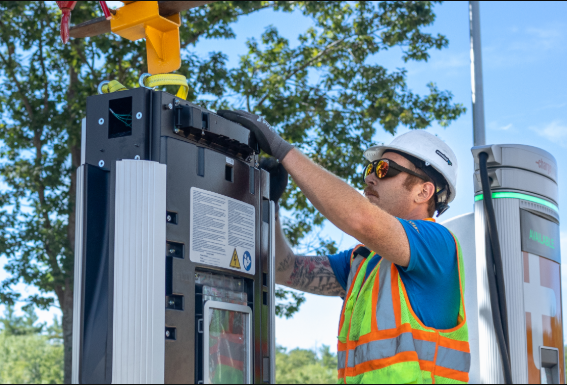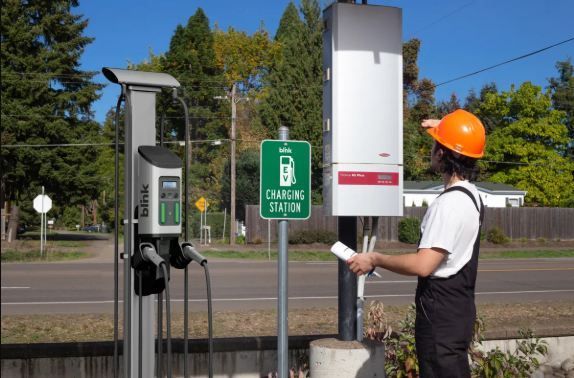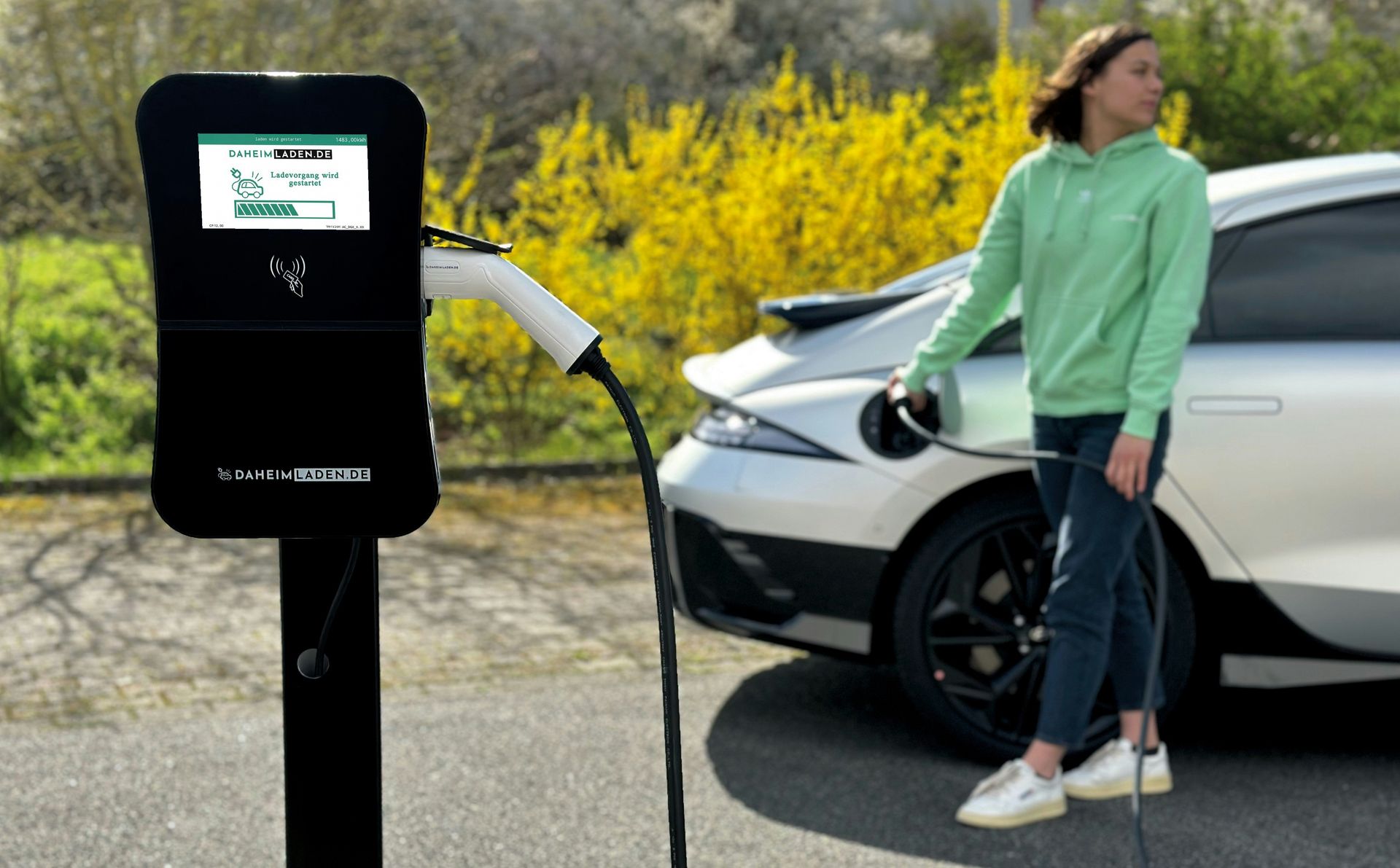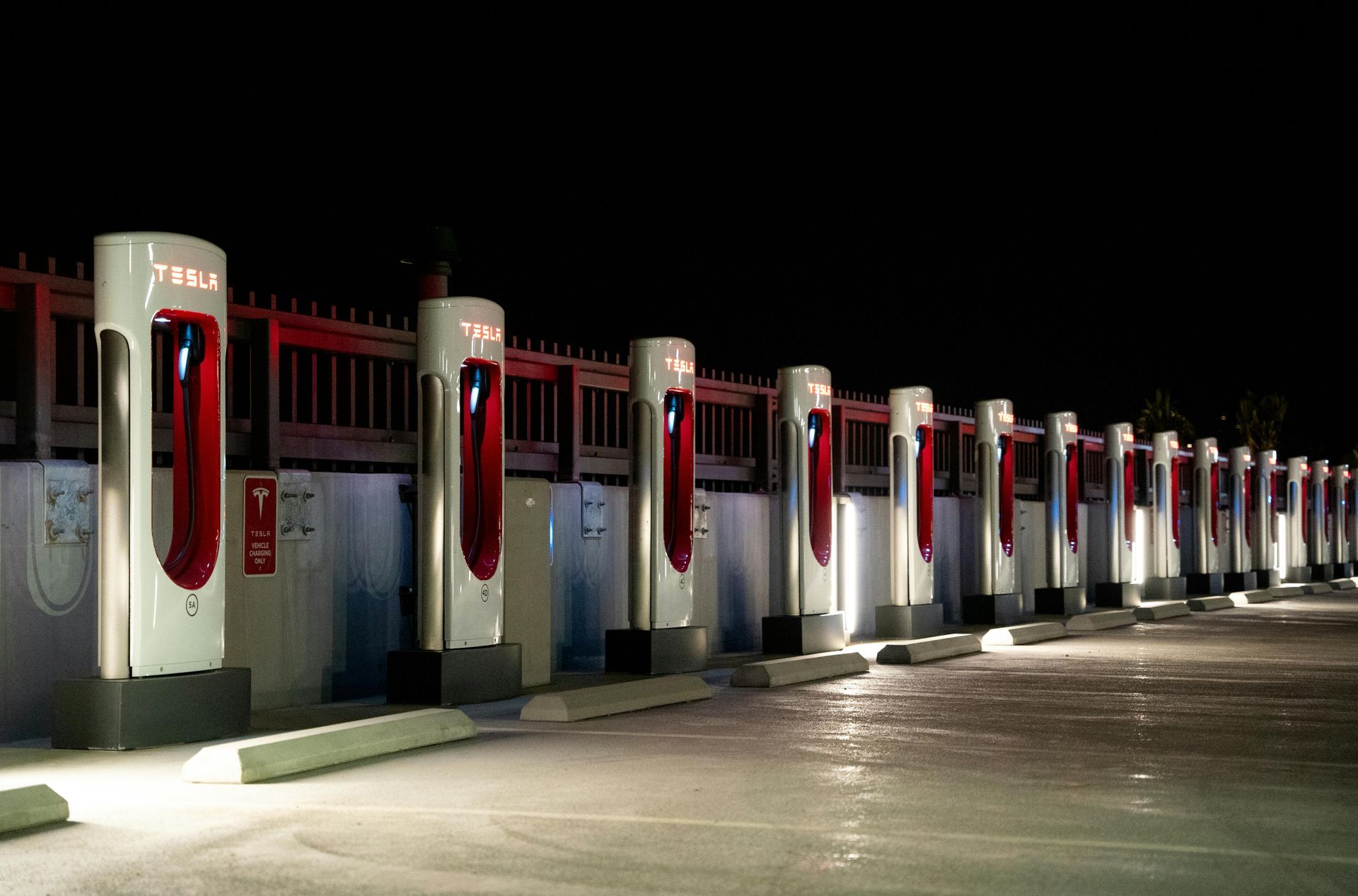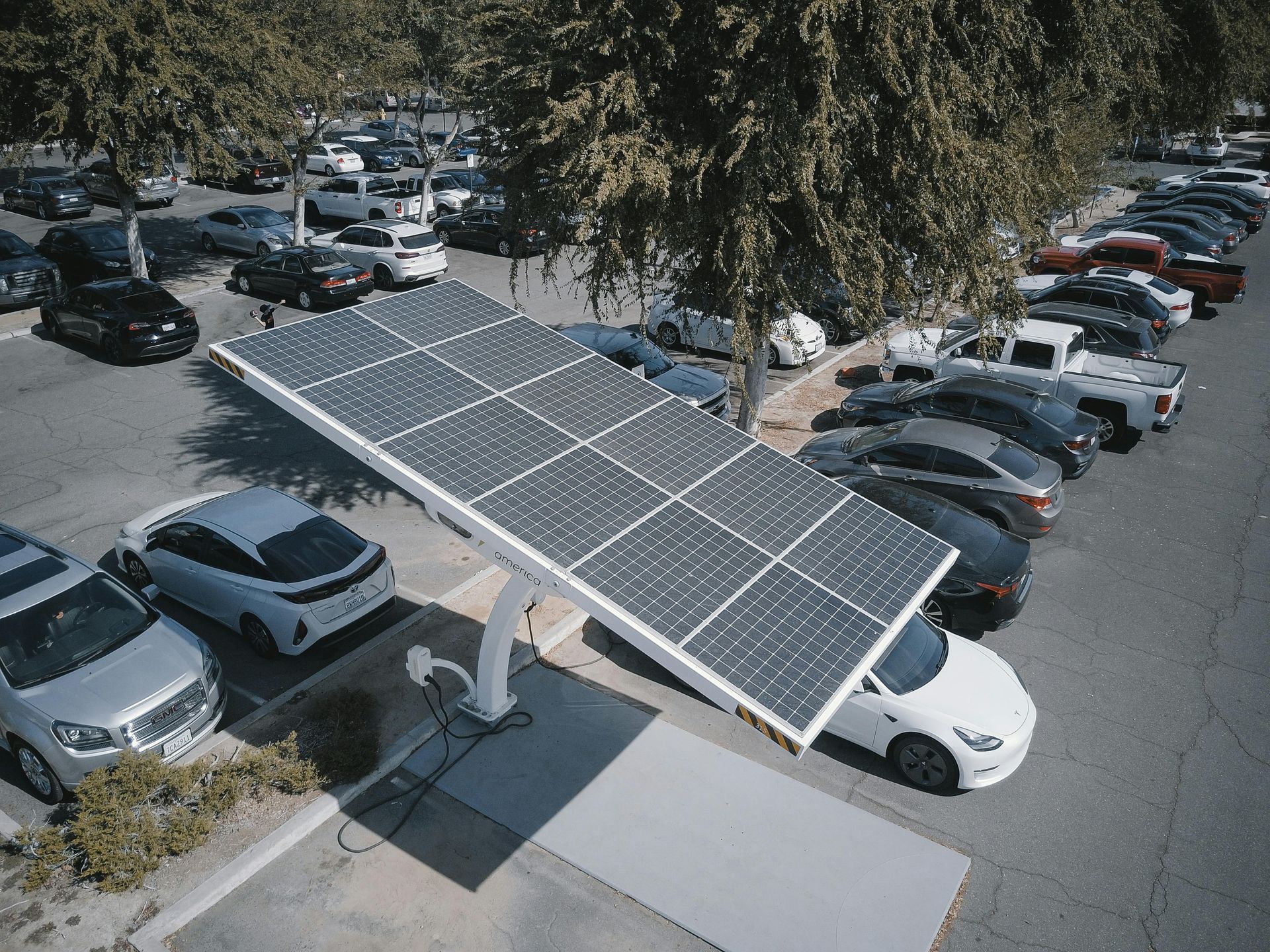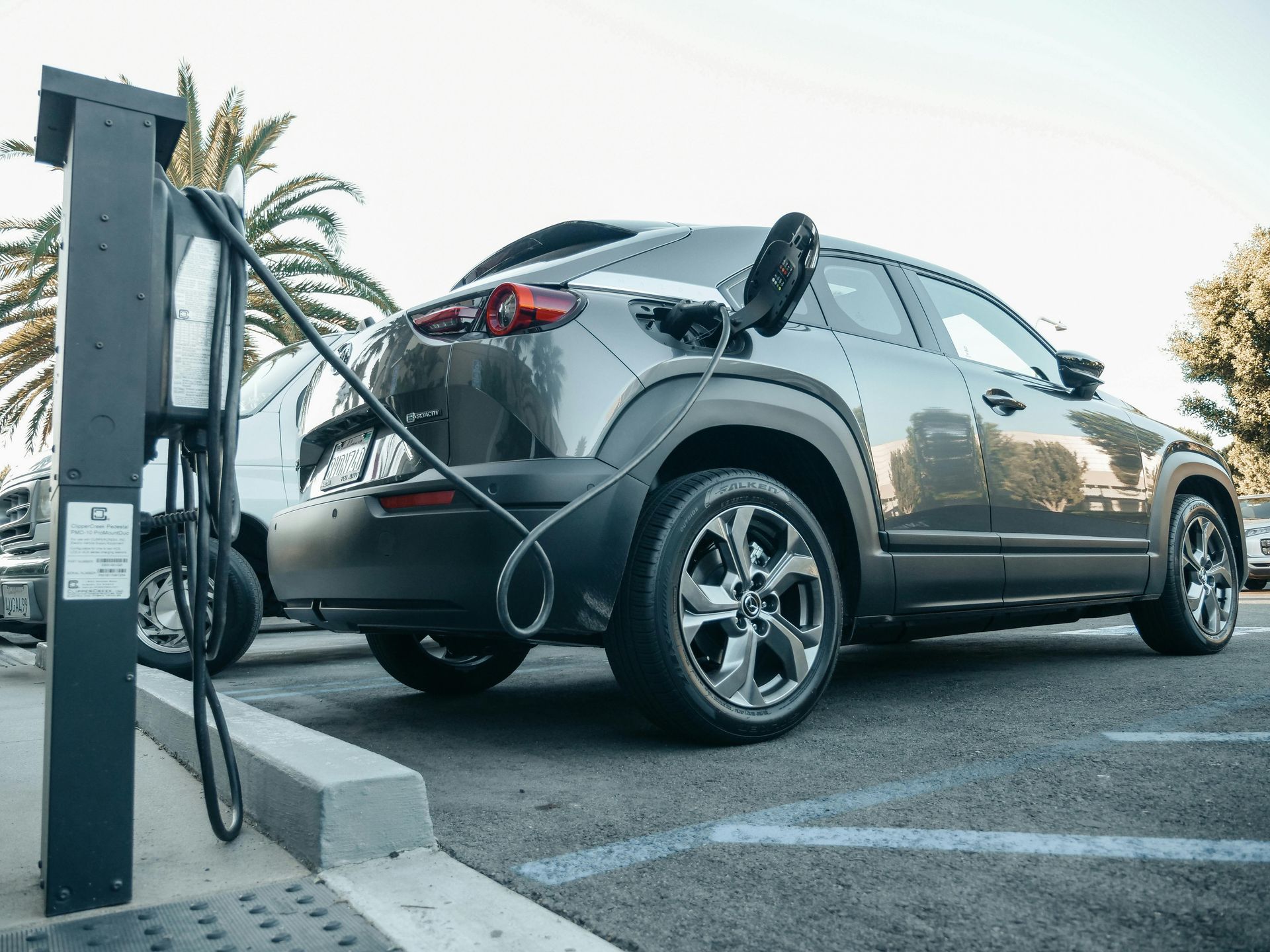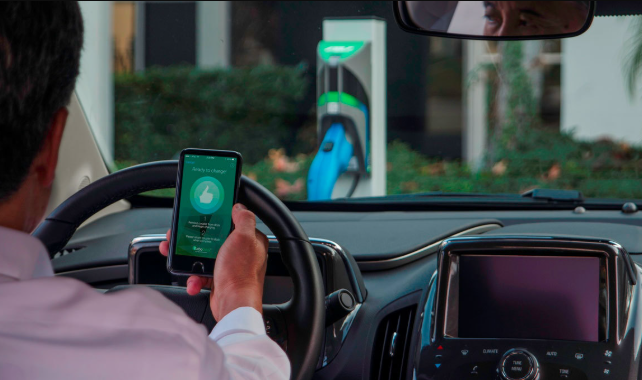Understanding EV Energy Management Systems (EVEMS): Smart Solutions for Efficient Charging
Explore what EVEMS are, how they work, their benefits, installation considerations, and answers to FAQ's
Introduction
As electric vehicles become increasingly common across the Greater Toronto Area and beyond, many homeowners and businesses face a significant challenge: how to charge EVs efficiently without overloading existing electrical systems or requiring costly upgrades. This is where EV Energy Management Systems (EVEMS) come into play—intelligent solutions that optimize charging while working within the limitations of existing electrical infrastructure.
EVEMS technology represents one of the most practical innovations in the EV charging landscape, allowing more electric vehicle owners to install home charging stations without major electrical service upgrades. For multi-vehicle households, condominiums, workplaces, and other settings where multiple EVs might charge simultaneously, these systems are becoming essential components of charging infrastructure.
In this comprehensive guide, we'll explore what EVEMS are, how they work, their benefits, installation considerations, and answers to frequently asked questions. Whether you're considering installing your first home charging station or looking to accommodate multiple EVs, understanding EVEMS will help you make informed decisions about your charging setup.
1. What Are EV Energy Management Systems?
EV Energy Management Systems, often abbreviated as EVEMS, are intelligent control systems that monitor and manage the flow of electricity to electric vehicle charging stations. They represent the "brain" that makes EV charging smarter, more efficient, and more adaptable to existing electrical constraints.
Core Functions and Capabilities
At their most basic level, EVEMS perform several essential functions:
Dynamic Load Management:
- Continuously monitor total electrical consumption in a home or building
- Adjust charging rates for connected EVs based on available capacity
- Prevent circuit overloads by reducing charging power when other appliances are active
- Automatically restore full charging power when additional capacity becomes available
Multiple Charger Coordination:
- Distribute available electrical capacity across multiple charging stations
- Prioritize charging based on user-defined preferences or vehicle needs
- Enable installation of more charging stations than the electrical service could otherwise support
- Facilitate sequential or simultaneous charging depending on requirements
Smart Integration:
- Connect with home energy systems, often via WiFi or hardwired networks
- Communicate with vehicle charging systems to optimize power delivery
- Integration with utility time-of-use rates to minimize charging costs
- Potential for connection with home solar and battery storage systems
Different Types of EVEMS
EVEMS solutions come in several configurations, each suited to different applications:
Circuit-Level Systems:
- Monitor and manage charging on a single electrical circuit
- Typically support 1-2 charging stations
- Simpler installation and lower cost
- Ideal for residential applications with limited charging needs
Panel-Level Systems:
- Monitor the entire electrical panel/service
- Support multiple charging stations across different circuits
- Provide more comprehensive energy management
- Suitable for larger homes, multi-unit buildings, or commercial applications
Integrated Charger Systems:
- Energy management functionality built directly into charging stations
- Communicate with each other to balance load
- Often require less additional hardware
- Typically limited to specific manufacturers' ecosystems
Cloud-Connected Solutions:
- Use internet connectivity for advanced features
- Enable remote monitoring and control
- Provide detailed usage analytics and reporting
- Often support over-the-air updates and feature enhancements
The appropriate EVEMS type depends on your specific situation, including the number of vehicles, existing electrical capacity, and potential for future expansion.
How EVEMS Work
To understand the value of EVEMS, it's helpful to know how they operate:
Current Monitoring:
- Current transformers (CTs) clamp around the main electrical lines entering the panel
- These sensors measure real-time electricity usage throughout the building
- Data is continuously transmitted to the EVEMS controller
Intelligent Decision Making:
- The controller calculates available capacity by subtracting current usage from the maximum allowed
- Sophisticated algorithms determine optimal charging rates for connected vehicles
- Prioritization rules are applied based on user settings and requirements
Adaptive Control:
- Control signals are sent to charging stations to adjust power output
- Changes can occur in real-time as other electrical demands fluctuate
- Some systems make adjustments in small increments for minimal impact on charging times
User Interface:
- Smartphone apps or web portals provide visibility into the system
- Controls allow for customization of charging preferences
- Reporting shows energy usage, costs, and optimization results
This intelligent coordination ensures that EV charging uses available capacity efficiently without exceeding the limits of your electrical service.
2. Benefits of Installing an EVEMS
EV Energy Management Systems offer numerous advantages that make them increasingly popular among homeowners and businesses throughout the Greater Toronto Area.
Cost Savings
Perhaps the most compelling benefit of EVEMS is the potential for significant cost savings:
Avoiding Electrical Service Upgrades:
- Upgrading from 100A to 200A service can cost $2,000-5,000 or more
- Larger upgrades to 400A service can exceed $10,000
- Potential requirement for utility transformer upgrades in some neighborhoods
- Permit costs and inspection fees add to the total expense
Reduced Installation Complexity:
- Fewer electrical panel modifications required
- Potentially simpler permitting process
- Less disruption to existing infrastructure
- Shorter installation timeframes
Operating Cost Optimization:
- Automatic scheduling during off-peak hours saves on time-of-use rates
- More efficient energy use reduces overall electricity consumption
- Some utilities offer special rates for managed charging programs
- Potential for demand charge avoidance in commercial applications
For many homeowners in Toronto and surrounding areas, an EVEMS can pay for itself quickly by eliminating the need for service upgrades while still enabling reliable EV charging.
Enhanced Charging Capacity
EVEMS make more efficient use of existing electrical capacity:
Multiple Vehicle Support:
- Charge two or more vehicles simultaneously on limited electrical service
- Support for future-proofing as households add additional EVs
- Accommodate guests with EVs without electrical concerns
- Enable workplace charging for multiple employees
Flexible Charging Schedules:
- Set priority for specific vehicles based on usage needs
- Establish charging windows aligned with daily routines
- Create different profiles for weekdays versus weekends
- Integrate with calendar functions for special charging needs
Maximized Charging Rates:
- Use the highest safe charging rate available at any given moment
- Automatically increase charging speed when other loads decrease
- Maintain maximum allowable charging without manual adjustment
- Optimize charging times even with variable household electricity usage
These capabilities allow households to support multiple EVs without electrical compromises that might otherwise make multi-vehicle charging impractical.
Integration and Smart Features
Modern EVEMS offer sophisticated integration capabilities:
Renewable Energy Coordination:
- Synchronize charging with solar production for optimal clean energy use
- Integrate with home battery storage systems
- Respond to grid conditions for greener charging
- Track and report on clean energy charging percentage
Home Automation Compatibility:
- Connect with platforms like Google Home, Amazon Alexa, or Apple HomeKit
- Incorporate charging into broader energy management strategies
- Coordinate with smart thermostats and other energy-intensive systems
- Create automated routines that consider vehicle charging needs
Data Insights and Reporting:
- Track charging costs, times, and energy consumption
- Generate reports for tax purposes (important for business charging)
- Analyze patterns to optimize charging schedules
- Project future energy needs as usage patterns evolve
These smart features transform EV charging from a simple utility function into an integrated part of a modern energy-efficient home or business.
3. Who Needs an EVEMS?
While EVEMS offer significant benefits, they're not necessary for every EV charging situation. Understanding when these systems provide the most value helps determine if one is right for your specific circumstances.
Perfect Scenarios for EVEMS Implementation
EVEMS are particularly valuable in these common situations:
Multi-EV Households:
- Families with two or more electric vehicles
- Households expecting to add additional EVs in the near future
- Properties with regular visitors who drive electric vehicles
- Homeowners wanting to future-proof their charging infrastructure
Limited Electrical Service:
- Homes with 100A service looking to avoid costly upgrades
- Properties where utility upgrades would be especially complex
- Older homes with limited spare electrical capacity
- Rural properties with constrained electrical service
Multi-Unit Residential Buildings:
- Condominiums with shared electrical infrastructure
- Apartment buildings adding EV charging amenities
- Townhouse complexes with common electrical services
- Residential communities with centralized parking facilities
Commercial and Workplace Settings:
- Businesses offering employee charging with limited electrical capacity
- Commercial properties supporting multiple tenant EVs
- Fleet operations transitioning to electric vehicles
- Retail locations providing customer charging
In these scenarios, the benefits of EVEMS typically far outweigh the additional investment compared to standard non-managed charging solutions.
When Standard Charging May Suffice
Some situations may not require the additional complexity of an EVEMS:
Single-EV Households with Adequate Service:
- Homes with 200A+ service and only one electric vehicle
- Properties with significant spare electrical capacity
- Situations where basic Level 2 charging (32A or less) is sufficient
- Locations with minimal other high-power electrical demands
Temporary or Transitional Setups:
- Short-term charging solutions before planned electrical upgrades
- Temporary locations where investment in advanced systems isn't justified
- Situations where Level 1 (120V) charging meets immediate needs
- Transitional periods before moving to a more suitable property
Limited-Use Scenarios:
- Weekend or occasional-use vehicles with flexible charging timing
- Very low daily mileage that could be satisfied with slower charging
- Plug-in hybrids with small batteries and limited electrical needs
- Locations where vehicles can reliably charge elsewhere (workplace, public)
In these cases, standard non-managed charging solutions may provide adequate functionality without the additional cost of an EVEMS.
Evaluation Factors
When deciding whether an EVEMS is necessary, consider these key factors:
Electrical Assessment:
- Current service size (100A, 200A, etc.)
- Existing loads and peak usage patterns
- Available capacity in electrical panel
- Cost and feasibility of service upgrades
Vehicle Considerations:
- Number of EVs now and in the near future
- Daily charging needs based on driving patterns
- Battery sizes and charging capabilities
- Scheduling flexibility for charging
Property Characteristics:
- Ownership status (owned vs. rental/condo)
- Expected length of residence
- Physical constraints affecting electrical upgrades
- Local building codes and requirements
Financial Factors:
- Budget for charging infrastructure
- Electricity rate structures (time-of-use, demand charges)
- Potential rebates or incentives for smart charging
- Long-term cost comparison of different solutions
Many homeowners throughout the Toronto area find that EVEMS provide the ideal balance of functionality and cost, particularly when the alternative would require significant electrical service upgrades.
4. Installation and Setup Considerations
Installing an EVEMS involves several important considerations to ensure optimal performance and compliance with electrical codes.
Pre-Installation Requirements
Before proceeding with EVEMS installation, several assessments and decisions are necessary:
Electrical Evaluation:
- Professional load calculation to determine available capacity
- Identification of potential panel space for additional breakers
- Assessment of existing wiring and potential upgrade needs
- Evaluation of internet connectivity for smart features (if needed)
System Selection:
- Determine appropriate EVEMS type for your specific needs
- Select compatible charging stations if not included in the system
- Evaluate expandability for future charging needs
- Consider communications protocol compatibility (WiFi, Ethernet, cellular)
Permitting and Approvals:
- Check local electrical code requirements for EVEMS installations
- Obtain necessary permits from municipal authorities
- For condos/apartments, secure approvals from property management
- Review utility requirements or notifications for managed charging
Installation Planning:
- Determine optimal locations for system components
- Plan cable routes and mounting requirements
- Identify network connection methods for smart systems
- Schedule installation to minimize disruption
Proper planning ensures a smooth installation process and optimal system performance once operational.
Professional vs. DIY Installation
While some components of charging infrastructure might tempt DIY enthusiasts, EVEMS installation typically requires professional expertise:
Professional Installation Benefits:
- Ensures compliance with electrical codes and safety standards
- Provides proper integration with existing electrical systems
- Includes configuration and testing of energy management features
- Often required to maintain equipment warranties and insurance compliance
Licensed Electrician Requirements:
- Installation of current transformers in electrical panels
- Connection of load management controllers
- Configuration of communication between components
- Setup of safety features and fail-safes
Manufacturer Certification:
- Some systems require installer certification from the manufacturer
- Ensures proper configuration of advanced features
- Provides access to technical support and troubleshooting
- May be required for extended warranty coverage
At MyEVExperts, our installation team is certified on major EVEMS platforms and has extensive experience with installations throughout the Greater Toronto Area, ensuring proper setup and optimal performance.
Integration with Existing Systems
For maximum benefit, EVEMS should be properly integrated with other home systems:
Home Network Connection:
- Secure WiFi or hardwired Ethernet connection
- Firewall configuration for cloud-connected systems
- Network stability considerations for reliable operation
- Proper placement for strong signal coverage
Smartphone and Control System Setup:
- User account creation and authentication
- App installation and configuration
- User preference settings and scheduling
- Multiple user access setup when needed
Other Energy Systems:
- Integration with solar monitoring (if applicable)
- Connection to home battery systems
- Coordination with whole-home energy management
- Smart home platform integration
Utility Program Enrollment:
- Registration for utility demand response programs (where available)
- Setup for time-of-use optimization
- Configuration of any special utility rate structures
- Grid service program participation (if offered)
Proper integration ensures that your EVEMS functions as part of a cohesive energy strategy rather than as an isolated system.
As EV Energy Management Systems become more common, we frequently receive questions about their functionality, benefits, and limitations. Here are answers to the most common inquiries.
5. Frequently Asked Questions About EVEMS
As EV Energy Management Systems become more common, we frequently receive questions about their functionality, benefits, and limitations. Here are answers to the most common inquiries.
Will an EVEMS slow down my charging?
Short Answer: Sometimes, but usually not significantly.
Detailed Explanation:
- EVEMS may temporarily reduce charging speed when household electrical demand is high
- When other electrical loads decrease, charging automatically returns to maximum rate
- Many users experience little to no practical impact on overall charging completion times
- Most vehicles spend much longer connected than actually charging, providing flexibility
- Smart scheduling ensures vehicles are fully charged when needed despite rate variations
In practice, most EV owners with properly configured EVEMS report that their vehicles are consistently charged and ready when needed, even if the charging rate varies during the process.
How much does an EVEMS typically cost?
Short Answer: $800-$3,000+ depending on the system type and features.
Cost Breakdown:
- Basic circuit-level systems: $800-$1,200
- Mid-range panel-level systems: $1,200-$2,000
- Advanced multi-vehicle systems: $2,000-$3,500
- Enterprise-grade commercial systems: $3,500+
Additional Considerations:
- Installation costs typically range from $500-$1,500 depending on complexity
- Multiple charging stations may add to the overall system cost
- Some utility companies offer rebates for EVEMS installation
- Compare against service upgrade costs ($2,000-$10,000+) for context
When evaluating cost, it's important to consider both the immediate expense and the long-term savings in electricity costs and avoided service upgrades.
Can I still charge at maximum speed with an EVEMS?
Short Answer: Yes, when electrical capacity permits.
Detailed Explanation:
- EVEMS allow full-speed charging whenever sufficient electrical capacity is available
- Many households have adequate capacity during evening/overnight hours when other usage is low
- Some systems allow you to prioritize specific vehicles for maximum speed charging
- Advanced scheduling can ensure full-speed charging during preferred time windows
- The system will only reduce charging rates when necessary to prevent overloads
Most users find that their vehicles charge at or near maximum speed during overnight hours when household electrical demand is naturally lower.
What happens if the EVEMS fails or loses connectivity?
Short Answer: Most systems have fail-safe modes to ensure charging continues safely.
Safety Features:
- Many systems default to a conservative charging rate if control systems fail
- Some completely stop charging until the system is restored (safety-first approach)
- More advanced systems may maintain the last known good configuration
- Local processing often continues even if cloud connectivity is lost
Redundancy Considerations:
- Systems with local processing continue basic functions without internet
- Some EVEMS include backup communication methods
- Manual override options on certain systems allow emergency operation
- Professional installation includes proper circuit protection regardless of EVEMS status
System reliability is a key consideration when selecting an EVEMS, and professional installation ensures appropriate fail-safe configuration.
Can I install an EVEMS myself?
Short Answer: Generally no, professional installation is recommended and often required.
Installation Considerations:
- EVEMS installation typically involves working inside electrical panels
- Current transformer installation requires expertise for proper placement and connection
- Configuration requires understanding of electrical loads and circuit capacities
- Most manufacturers require professional installation to maintain warranty coverage
Code Compliance:
- Electrical codes typically require licensed professionals for this type of work
- Improper installation could create safety hazards or electrical code violations
- Insurance policies may require professional installation documentation
- Permits and inspections generally necessitate licensed electrician involvement
At MyEVExperts, we provide complete professional installation services with certified technicians familiar with all major EVEMS brands and local electrical code requirements throughout the Greater Toronto Area.
How does an EVEMS work with solar or home batteries?
Short Answer: Advanced EVEMS can coordinate with solar and battery systems for optimized energy usage.
Solar Integration:
- Some systems can increase charging rates when solar production is high
- Solar-aware EVEMS can help maximize self-consumption of generated energy
- Integration typically requires compatible solar monitoring systems
- More sophisticated systems can predict solar production based on weather forecasts
Battery Coordination:
- EVEMS can work with home batteries to optimize overall energy flow
- Some systems allow prioritization between vehicle charging and battery storage
- Advanced coordination can balance grid demand with stored energy availability
- Integration complexity varies significantly between different manufacturers
The level of renewable energy integration depends on both the EVEMS capabilities and the specific solar/battery systems installed. Our team can advise on compatible configurations for optimal results.
Conclusion
EV Energy Management Systems represent an intelligent solution to one of the most common challenges in electric vehicle adoption: providing sufficient charging capabilities without expensive electrical upgrades. By dynamically managing available power, these systems enable more efficient charging while working within the limitations of existing infrastructure.
For households with multiple electric vehicles or properties with limited electrical service, EVEMS offer a cost-effective alternative to major service upgrades while providing enhanced functionality through smart features and integrations. Even for locations with adequate electrical capacity, the scheduling and monitoring capabilities of these systems can optimize charging costs and improve the overall EV ownership experience.
As the electric vehicle landscape continues to evolve across the Greater Toronto Area, EVEMS technology will become increasingly common, particularly in multi-unit residential buildings, workplaces, and homes with multiple EVs. The ability to intelligently manage charging not only benefits individual owners but also supports broader grid stability as EV adoption accelerates.
When considering charging infrastructure for your home or business, evaluating whether an EVEMS would provide value is an important step in the planning process. While not every installation requires energy management, the benefits for appropriate situations can be substantial in terms of cost savings, convenience, and future readiness.
Contact Us for Personalized EVEMS Solutions!
At MyEVExperts, we specialize in designing and installing customized EV charging solutions throughout the Greater Toronto Area, including advanced Energy Management Systems tailored to your specific needs. Our certified technicians can assess your electrical capacity, evaluate your charging requirements, and recommend the optimal EVEMS configuration for your situation.
Whether you're looking to charge multiple vehicles on limited electrical service, optimize charging costs through intelligent scheduling, or integrate with renewable energy systems, we provide comprehensive solutions with professional installation and ongoing support.
Contact us today to discuss how an EVEMS could enhance your electric vehicle charging experience!

